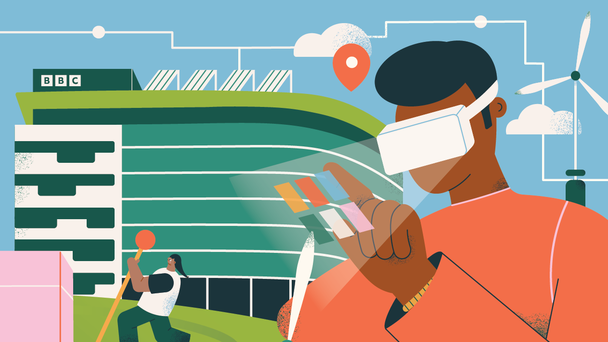Accepting and trying to deal with climate as an overriding priority
I need to dig into this BBC R&D report, but it looks fascinating at first glance. I recognise the names of some of the people who were interviewed in the process of creating it, and what’s interesting to me is that they found that instead of the ‘next big thing’ in terms of technology, they found “a complex set of factors that we believe will enable and catalyse one another, sometimes in surprising and unpredictable ways”.
The most important of these, of course, was “accepting and trying to deal with climate as an overriding priority” but also identifying two types of complexity. The first is “a sense that in order to simply go about your day as a person, it’s necessary to interact with, and understand, many complex sources of information”. The second is “a sense that the overarching systems of the world like politics, finance, economics, and healthcare, are becoming more complex and difficult to understand”.

Late in 2022, we began a straightforward-sounding research project: compile a list of technologies that we should be paying attention to in BBC Research & Development over the next few years and make some recommendations about their adoption to the wider BBC. As I’m sure you’ve already guessed, things didn’t turn out quite so straightforward.Source: Projections: Things are not normal | BBC R&DBy the end of the project, we’d interviewed twenty-two people from the fields of science, economics, education, technology, design, business leadership, research, activism, journalism, and many points between. We spoke to people from both inside and outside the BBC and around the world. All of these people have a unique view on the future, and our report teases out the common themes from the interviews and compiles their ideas about how things might come to be in the near future.
We grouped the themes we identified into five sections. The first, A complex world, outlines sources of complexity and uncertainty our interviewees see in their worlds. Climate change is by far the largest and most significant of these. The next section, A divided world, also covers big-picture context and outlines some of the social and economic drivers our interviewees see playing out over the next few years. The AI boom and New interactions go into detail on specific technologies and use cases our interviewees think will be significant. Finally, The case for hope bundles up some of the reasons our interviewees see to be hopeful about the future — provided we are willing to act to bring about the changes we’d like to see in the world